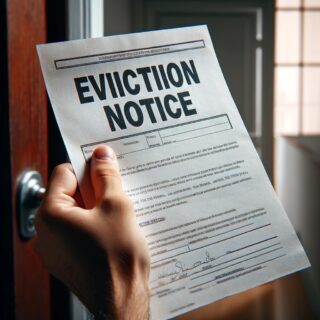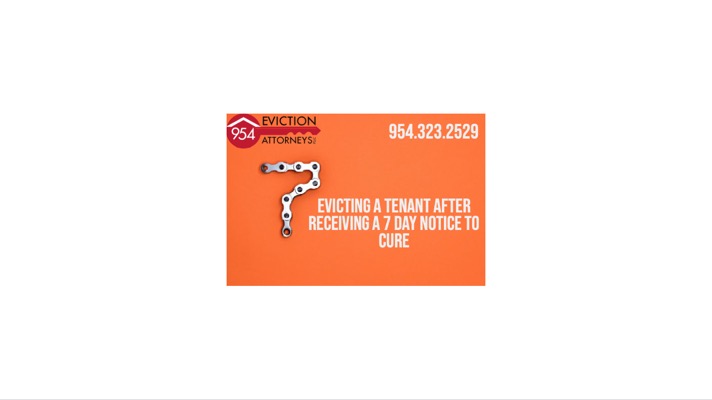Eviction Strategies for Non-Paying Tenants in South Florida: A Comprehensive Guide for Landlords
Dealing with non-paying tenants can be a significant challenge for landlords in South Florida. The process of evicting a tenant who refuses to pay rent requires a strategic and legally sound approach. This guide will provide you with effective eviction strategies, ensuring your property rights are protected while minimizing the hassle and financial strain associated with the eviction process.
Understanding the Legal Grounds for Eviction
Before initiating an eviction, it’s crucial to understand the legal grounds on which you can evict a tenant. In South Florida, non-payment of rent is a valid reason for eviction. As a landlord, you must ensure that all your actions comply with state and local laws to avoid potential legal repercussions.
Step-by-Step Eviction Process
- Reviewing the Lease Agreement
The lease agreement is your first line of defense against non-paying tenants. Review the lease terms to confirm the payment schedule and any penalties for late or missed payments. Ensure that your lease agreement clearly outlines the consequences of non-payment, including eviction.
- Serving an Eviction Notice
If a tenant fails to pay rent on time, you must serve them with an official eviction notice. In Florida, this typically involves a “3-Day Notice to Pay Rent or Quit,” which gives the tenant three business days to pay the overdue rent or vacate the property. Make sure the notice is delivered in accordance with Florida law, either by personal delivery, mailing, or posting on the property.
- Filing an Eviction Lawsuit
Should the tenant fail to comply with the eviction notice, you can proceed by filing an eviction lawsuit, also known as an “unlawful detainer” action, with the local court. This step involves submitting the necessary paperwork and paying the required filing fees. Once filed, the court will schedule a hearing date.
- Court Hearing and Judgment
At the court hearing, both parties will present their cases. As the landlord, you must provide evidence of the lease agreement, the served eviction notice, and proof of non-payment. If the court rules in your favor, you will receive a judgment for possession of the property.
- Enforcing the Eviction
With a court judgment in hand, you can request a writ of possession from the court clerk. This document authorizes the sheriff to remove the tenant from your property. The tenant will receive a final 24-hour notice to vacate before the sheriff’s office enforces the eviction.
Alternative Strategies to Eviction
While eviction is often necessary, exploring alternative strategies can sometimes resolve the issue more efficiently and amicably.
Negotiating a Payment Plan
Consider negotiating a payment plan with your tenant. This approach can help you recover unpaid rent without the need for legal action. Ensure that any payment agreement is documented in writing and signed by both parties.
Cash for Keys Agreement
A “cash for keys” agreement involves offering the tenant a financial incentive to vacate the property voluntarily. This method can be faster and less costly than a formal eviction process. However, ensure that the agreement is legally binding and documented.
Preventing Future Non-Payment Issues
Prevention is always better than cure. Implementing strict tenant screening procedures can help you avoid future non-payment issues. Conduct thorough background checks, verify employment and income, and contact previous landlords for references.
Don’t Face Eviction Issues Alone
If you’re dealing with non-paying tenants and need professional legal assistance, 954 Eviction Attorneys, PLLC is here to help. Our experienced team specializes in landlord representation and can guide you through the eviction process efficiently and effectively. Contact us today at 954.323.2529 to schedule a consultation and protect your property rights.
FAQs
How long does the eviction process take in South Florida? The eviction process can take several weeks to a few months, depending on court schedules and the tenant’s response.
What are the costs associated with evicting a tenant? Costs include court filing fees, attorney fees, and potentially lost rent during the eviction process.
Can a landlord change the locks to evict a tenant? No, landlords cannot change the locks or take possession of the property without a court order.
Can a tenant appeal an eviction judgment? Yes, tenants can appeal the judgment, which may extend the eviction process.
Is a lawyer necessary for the eviction process? While not required, hiring a lawyer can help ensure the eviction process is handled correctly and efficiently.
By following these strategies and understanding the eviction process, you can effectively manage non-paying tenants in South Florida and safeguard your property rights. For expert legal assistance, remember to reach out to 954 Eviction Attorneys, PLLC at 954.323.2529.





You must be logged in to post a comment.